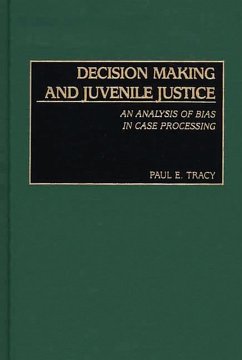Based on a comprehensive study of three counties in Texas, this work examines the idea of differential handling of minority youth offenders. Traditional wisdom indicates that minorities are over-represented in the juvenile justice system due to racism and discrimination within the system itself. The author refutes this logic by challenging current studies and examining the results of the Texas study. The findings suggest that minorities are represented in the juvenile justice system in greater numbers than their majority offender counterparts due to their greater involvement in criminal activity, not to any differential treatment they may receive at crucial decision points within the system. Allegations of racial bias against the juvenile justice system are often supported by the federal government, which suggests that minorities continue to be targeted more frequently for arrest, prosecution, conviction, and imprisonment merely because they are persons of color. Drawing on new research, the author addresses racial disparity in the juvenile justice system and contends that previous research suffers methodological and statistical analysis problems, resulting in the mischaracterization of the issue of racial bias. The present study argues that most minority juveniles receive different case outcomes because of the severity of their current offense, and both the length and severity of their prior delinquency careers. Tracy's research ultimately indicates that rather than being discriminatory, the juvenile system is, instead, reacting to a particular type of delinquent using legally permissible guidelines.
Bitte wählen Sie Ihr Anliegen aus.
Rechnungen
Retourenschein anfordern
Bestellstatus
Storno









